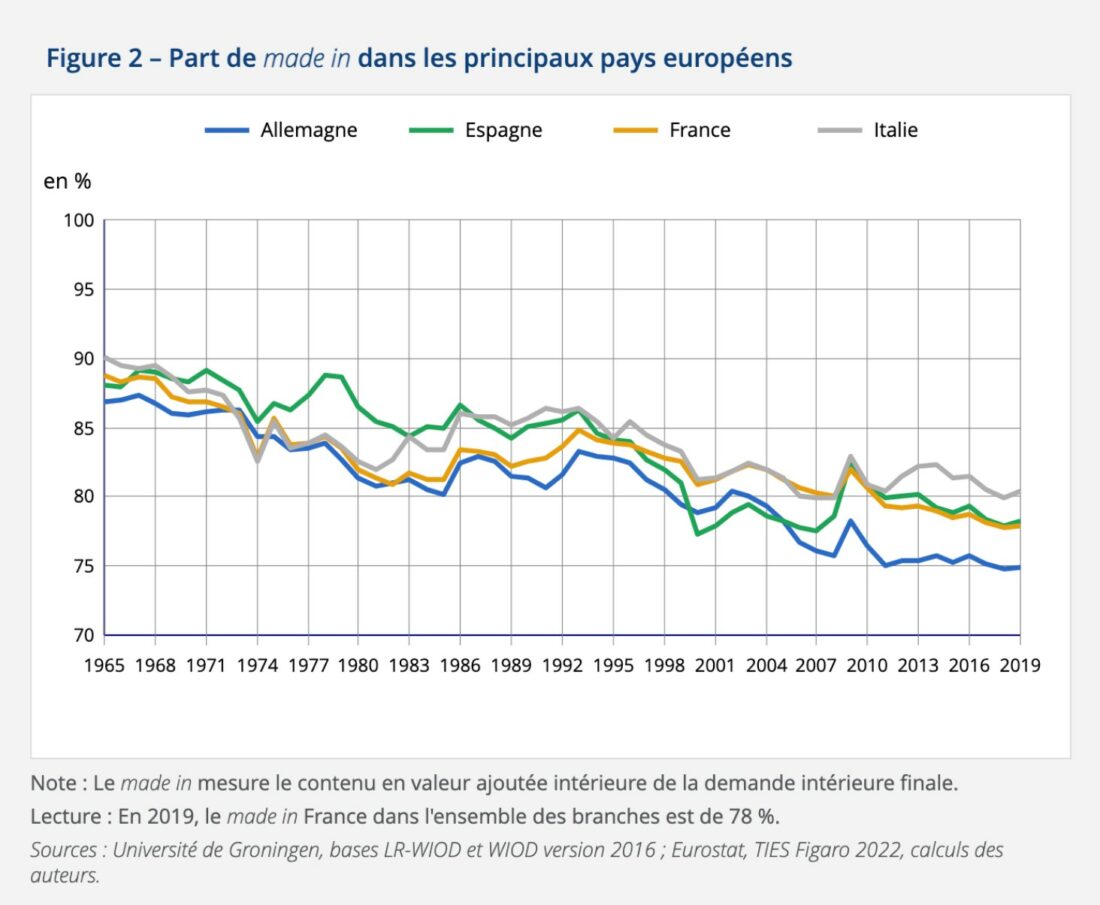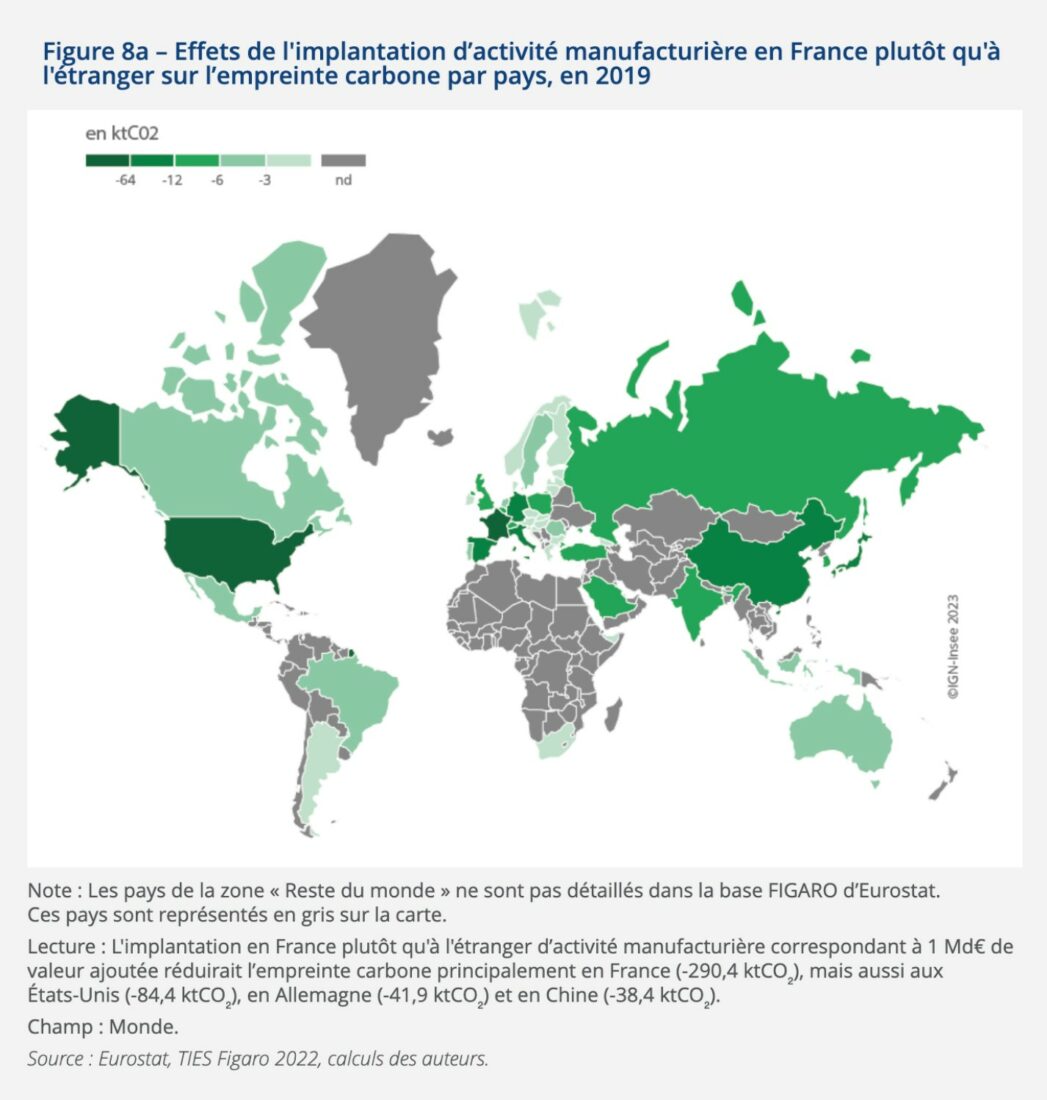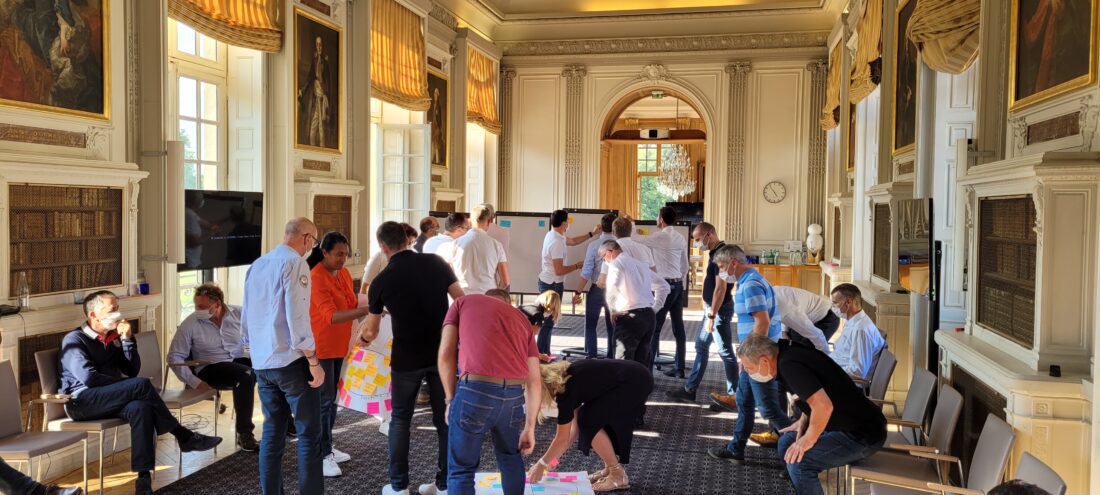
Social relations in the workplace: what if we stopped focusing on conflicts?
Social relations are a key element in the dynamics of any organization. However, they are often studied in terms of conflict, and seen as a source of inevitable tension.

While the tertiary sector dominates the media, industry remains an essential pillar of the French landscape.
Paint, coatings, metallurgy… On a daily basis, many industries connect us to the world and to age-old know-how.
In this dynamic, reindustrialization can become a major lever of ecological transition, provided it is intelligently supported, notably through a holistic approach.
Here’s how.
As part of the France 2030 plan, the French government has made reindustrialization a major objective in order to preserve our industrial and technological sovereignty.
This approach aims to respond to crucial challenges such as employment, industrial sovereignty and the ecological transition.
Indeed, over the last fifty years, 2.5 million industrial jobs have been lost, while French industry still accounts for 18% of national greenhouse gas emissions. A recent analysis by Insee reveals a significant drop in “Made in France”, from 89% to 78% between 1965 and 2019.
This trend, common to many European countries, reflects increasing globalization and the expansion of Chinese trade.
Repatriating some production to France could have positive economic repercussions.
In fact, according to the same study, the establishment in France of an industrial activity generating 1 billion euros of added value would induce a total of 2 billion euros of added value in the economy, through knock-on effects.
This relocation would also have positive effects on employment, stimulating job creation in various sectors, while guaranteeing our sovereignty over certain essential products – a major lesson learned from the Covid-19 pandemic.


Far from being a purely economic objective, reindustrialization can be a crucial lever for the ecological transition.
By rebuilding our economies locally and modernizing our production processes, we can better meet the objectives of energy efficiency and sobriety.
Re-industrialization should also have virtuous effects on the climate thanks to France’s energy mix, as French production is less carbon-intensive than that of its current trading partners.
As well as helping to protect the environment, the ecological transition offers numerous benefits to companies, including long-term cost reduction, innovation stimulation and enhanced reputation with customers and partners.
In an interview for Public Sénat, Gilles Babinet, President of the Conseil National du Numérique, France’s representative to the EU on digital transition, highlights the importance of an ecosystem approach based on data integration and artificial intelligence in tomorrow’s production model.
He proposes the creation of investment plans to encourage this transition, and stresses the need to rethink the current industrial model to take advantage of the productivity gains offered by artificial intelligence.
Thus, reindustrialization should not be seen as a return to the industrial past, but rather as a step towards a future that integrates economic objectives, ecological imperatives and technological advances.
This transition to more efficient, environmentally-friendly industrial models is essential to ensure more efficient management, better environmental integration and a fair distribution of productivity gains.
According to recent data, reindustrialization is a reality: the number of plant creations has exceeded the number of closures over the past 5 years.
This dynamic, though fragile due to current interest rates, is vital.
However, this transition requires the development of new skills in order to navigate it properly.
Anticipating tomorrow’s professions is essential if we are to remain competitive.
To support this transition, 1.3 million new hires are planned.
Developing skills in areas such as decarbonation, the circular economy and biodiversity is crucial.
The law of September 5, 2018 played a key role in mobilizing industry players around vocational training, notably with the creation of OPCO 2i, supporting more than 75,000 industry companies on the subject of increasing skills.
Our partnership with OPCO 2i illustrates this approach, with the introduction of 45 training courses dedicated to the ecological transition of industries.
By training employees in environmental issues and new technologies, in areas such as eco-design, waste management and energy management, companies are preparing to play a key role in the transformation of industry.
Training in soft skills is essential, as these skills also have a significant impact on commercial and technical performance.
To achieve a successful ecological transition within industry, it is imperative to have an in-depth understanding of environmental issues, the impacts of industrial activities and the solutions to be adopted.
Raising awareness is the first crucial step in initiating any effective ecological transition project, as employee commitment is essential to the success of the transition.
It’s not uncommon for transformations to be launched without taking into account those working in the field, such as sales staff or factory workers.
It’s important to recognize that priorities vary according to function within the company.
For example, a worker’s success often hinges on specific aspects such as physical safety, which is less of a concern for office workers.
Spending time with the people who will be directly affected by the concrete changes is therefore essential to a better understanding of the issues at stake.

Co-creation workshops on ecological transition and roadmaps at Yamaha France
It’s also important to understand that it’s normal for these transitions to arouse fears and stress among employees, as they take on a highly emotional aspect.
What will become of my job?
Where will my structure be in the years to come?
These questions need to be normalized, and dialogue fostered to strengthen the sense of belonging and cohesion.
Promoting a new kind of leadership, based on collective and emotional intelligence, as well as transparent communication, is essential to support teams through this period of change.
Thus, the ecological transition of industry requires a global and inclusive approach, in which training, employee commitment and the consideration of all links in the company play a central role.
Only concerted initiatives and a long-term vision will enable industry to successfully meet the challenges of the 21st century.
If you’re working on these transformational issues, or would like to develop them further, get in touch with us to find out more about Connection Leadership’s practical solutions.
Plus qu’un cabinet de conseil, Connection Leadership est votre partenaire dans la transformation holistique. Our approach, based on transversality and pragmatism, brings you all the necessary elements to co-construct the transformation of your company. This co-construction is carried out with all levels of the company to improve collective commitment. Our coaching and transformation programs are designed to bring impact and concrete results, ultimately empowering you in your transformation.

Social relations are a key element in the dynamics of any organization. However, they are often studied in terms of conflict, and seen as a source of inevitable tension.

Rapid growth is both stimulating and crucial for any developing company. But as your organization sets out to reach new heights, it’s essential that success doesn’t rely solely on technical decisions and processes…

In an ever-changing world, where companies are faced with increasingly complex challenges, it is essential to develop innovative approaches to effectively support their transformation. The systemic approach is proving to be a powerful tool

In the frenzy of our modern daily lives, testimonies are multiplying: burn-outs, strokes, bodies pushed to their limits…
This raises a crucial question: are these cases the obvious result of a mismatch between the way we work and our fundamental needs?

In a constantly changing world, marked by the complex workings of the 4th industrial revolution and the growing urgency of the ecological and energy transition, the challenges facing companies are more numerous than ever.

Where the concept VUCA (Volatile, Uncertain, Complex, Ambiguous) has long been used to describe this ever-changing world, another term, “polycrisis”, evoked by sociologist and philosopher Edgar Morin, now finds particular resonance.